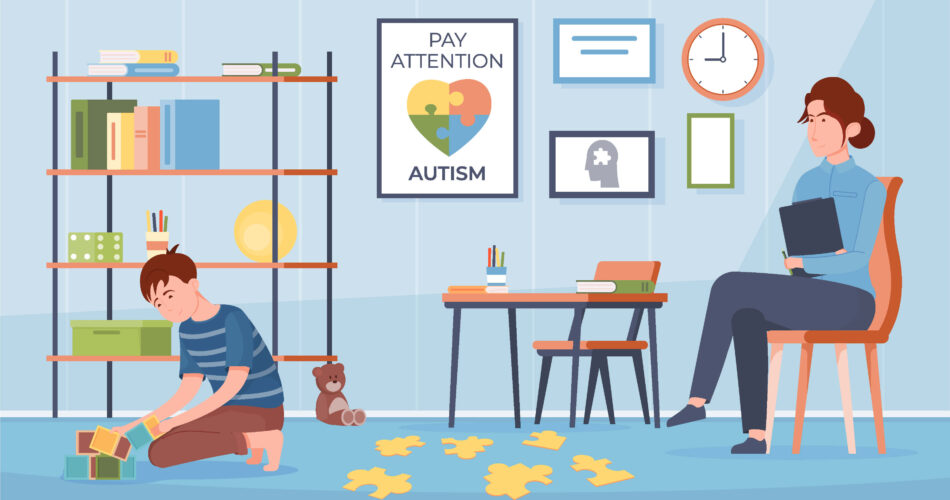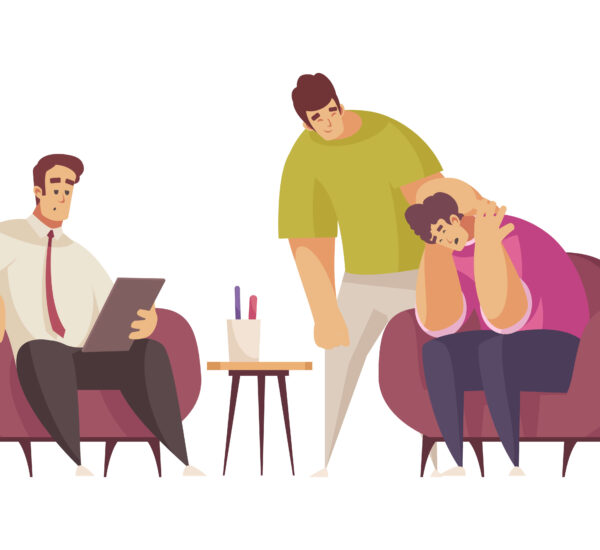Living with a mental disability can present unique challenges that can impact various aspects of daily life. Some instances can occur such as compromised speech, diet, perception, etc. Suffering from these challenges can be managed through finding a strong support system and appropriate help. That’s our main focus for today’s blog!
Understanding Mental Disability Today

Mental disability refers to a condition that affects a person’s cognitive, emotional, and behavioral functioning. These disabilities can manifest in various forms. Thus can make a huge impact on an individual’s ability to manage everyday tasks and cope with life stressors effectively. That’s why understanding mental disabilities is crucial in order to promote inclusivity and provide appropriate support to those affected.
It is understandable to feel scared, especially when dealing with such complex aspects of one’s health. With the current perception about mental health, it’s been a difficult journey for many patients. Some cases involve discrimination and isolation due to lack of understanding about mental health. Thus mental disorders prevail due to no immediate intervention or response about such conditions.
One of the downsides of such stigma involves self-medication like drug use or substance use. Many patients resort to such acts due to fear of discrimination for visiting health care professionals. Unfortunately, doing such acts is the wrong way to handle mental health issues as it can lead to further damage in the mind. Thus, the progression to severe mental disorders occurs. That’s how important mental health awareness is so people with such conditions and people around them can stop the stigma and promote overall wellness.
Common Mental Disability
There is a broad range of conditions that affect mental health and cognitive abilities. These medical conditions can be caused by different factors, which should be taken seriously. It is important to note that mental illnesses are not indicative of a person’s intelligence or worth, rather reflect the unique challenges they may face in different aspects of life.

Autism Spectrum Disorder
One common mental disability is autism spectrum disorder (ASD). ASD is a neurodevelopmental disorder that affects social interaction, communication, and behavior. Individuals with ASD may have difficulty understanding and responding to social cues, have repetitive behaviors, and exhibit intense interests in specific topics. Despite these challenges, individuals with ASD often possess unique strengths and talents, such as exceptional attention to detail or strong visual thinking abilities.
Attention Deficit Hyperactivity Disorder
Another mental disability is attention deficit hyperactivity disorder (ADHD). ADHD is characterized by difficulties with attention, hyperactivity, and impulsivity. Individuals with ADHD may struggle with staying focused, completing tasks, and controlling their impulses. However, they may also exhibit remarkable creativity, high energy levels, and the ability to think outside the box.
Bipolar Disorder
Meanwhile, bipolar disorder is another mental disability that affects mood and energy levels. Individuals with bipolar disorder experience extreme mood swings, ranging from manic episodes of elevated mood and energy to depressive episodes of low mood and decreased energy. Managing bipolar disorder often involves a combination of medication, therapy, and lifestyle adjustments. Despite the challenges, individuals with bipolar disorder can lead fulfilling lives and contribute to society in meaningful ways.
Depression
On the other hand, this mental illness is characterized by persistent feelings of sadness, hopelessness, and a lack of interest or pleasure in activities. Depressed mood can affect a person’s ability to function in daily life and may lead to physical symptoms in major life activities such as changes in appetite or sleep patterns.
Professional care and treatment for depression often includes therapy, medication, and support from loved ones. With proper treatment and support, individuals with depression can experience significant improvement in their quality of life.
Anxiety
Furthermore, another mental illness involves the persistent worry and fear, known as anxiety disorders. This disorder can interfere with daily activities and relationships. Generalized anxiety disorder, panic disorder, and social anxiety disorder are examples of anxiety disorders. Treatment for anxiety disorders may include therapy, medication, and self-help strategies such as relaxation techniques or mindfulness exercises.
Schizophrenia
Meanwhile, it is one of the chronic mental disabilities that can affect a person’s perception of reality, thoughts, emotions, and behavior. Individuals with schizophrenia may experience hallucinations, delusions, disorganized thinking, and social withdrawal. Treatment for schizophrenia often involves a combination of medication, therapy, and support from mental health professionals and loved ones. With proper treatment and support, individuals with schizophrenia can manage their symptoms and lead fulfilling lives.
Post-traumatic Stress Disorder
Post-traumatic stress disorder (PTSD) is a mental disability that can develop after experiencing or witnessing a traumatic event. Individuals with this mental illness may experience intrusive memories, nightmares, flashbacks, and heightened anxiety. Treatment for PTSD often includes therapy, medication, and self-care strategies such as exercise or relaxation techniques. With appropriate treatment and support, individuals with PTSD can recover and regain control over their lives.
It is important to recognize that mental disabilities are diverse and can affect individuals in different ways. The impact of a mental disability can vary depending on factors such as severity, individual strengths and weaknesses, and the availability of support systems. By understanding and acknowledging the unique experiences of individuals with mental disabilities, we can create a more inclusive and supportive society for all.
Effect of Mental Disability to Everyday Life

Individuals living with mental disabilities face unique challenges that can impact their everyday lives in various ways. From struggling with daily tasks to navigating social interactions, the effects of mental disabilities are far-reaching. Simple activities that others may take for granted, such as getting out of bed in the morning or engaging in conversations, can be daunting.
The impact of suffering from mental health disorder on everyday life is not just limited to the individual but also extends to their relationships, work, and overall quality of life. Stigma and discrimination further exacerbate these challenges, making it crucial for society to offer understanding
The Role of Family Members and Friends in Providing Support
When it comes to mental disabilities, the support of family and friends is invaluable. These individuals provide emotional support and understanding, which can help those with mental disorders feel validated and less isolated. Simple acts of listening without judgment, offering empathy, and providing a safe space for expression can have a profound impact on their overall well-being.
Moreover, members of the family and close acquaintances can assist individuals with mental disabilities in their daily tasks. For those who struggle with organization, time management, and other aspects of daily living, this assistance is essential. Whether it’s helping with household chores, reminding them to take medication, or assisting with transportation, the practical support provided by loved ones can greatly improve their quality of life.
Not only do they offer support on an individual level, but they also have the power to advocate for the rights and well-being of individuals with mental disabilities on a larger scale. Showing the importance of seeking professional help is one way to let them feel accepted. By raising awareness and challenging stigmas, it can help build a more accepting environment for their loved ones.
Professional Support for Mental Disabilities

While the support of family and friends is invaluable, professional support is equally crucial for individuals with mental disabilities. Various resources like mental health services are available to help address their unique needs.
Living with a mental health disorder can present numerous challenges since it can result in further complications like intellectual disabilities when not treated immediately. Fortunately, therapists and counselors are trained professionals who provide therapeutic interventions specifically tailored to the needs to address the threat of a mental disability.
Therapists and Counselors
Therapists and counselors play a vital role in the lives of individuals with mental disabilities. Through techniques such as cognitive-behavioral therapy or psychotherapy, they assist in managing symptoms, developing coping mechanisms, and improving social skills and overall well-being.
These professionals provide a safe space for individuals to explore their thoughts, emotions, and experiences. Furthermore, therapists and counselors can help patients gain insight, develop effective strategies, and enhance their quality of life.
With their expertise in various mental health disorders, it enables them to provide specialized support. Whether it’s anxiety, depression, bipolar disorder, or any other mental disability, these professionals have the expertise to offer guidance and assistance.
Support Groups and Communities

While individual therapy is valuable, support groups and communities offer individuals with mental disabilities the opportunity to connect with others who share similar experiences. These groups provide a safe space for sharing, learning, and building a sense of belonging.
Within these communities, individuals can find solace in knowing that they are not alone in their struggles. They can exchange stories, offer support, and gain valuable insights from others who have faced similar challenges. Building a support network can be instrumental in overcoming obstacles and reducing feelings of isolation.
Support groups and communities come in various forms, ranging from in-person meetings to online forums. They cater to different mental disabilities, ensuring that individuals can find a group that aligns with their specific needs and interests. Whether it’s a group focused on anxiety disorders, autism spectrum disorders, or mood disorders, these communities provide a sense of camaraderie and understanding.
Treatment Options for Managing Mental Disability
One of the main reasons for seeking help from a professional is to receive an appropriate treatment for properly taking care of the overall health of patients. There are persistent mental disorders that can lead to intellectual disability or mental retardation when not addressed and managed well. Thus, the importance of being diagnosed properly to begin tailored medications.
At the same time, patients can also follow other recommended forms of treatment that health experts will suggest. That can involve alternative medicine, change in diet, and even lifestyle changes. Let’s discuss the following treatment options below!
Medication
Psychiatric medications play a crucial role in managing mental disabilities by balancing brain chemicals and alleviating symptoms. These medications are prescribed based on individual needs and may include antidepressants, antipsychotics, mood stabilizers, or anti-anxiety drugs.
Medication prescribed by psychiatrists can help in balancing brain chemicals and alleviating symptoms associated with mental disabilities. It is essential for individuals to follow their medication regimen as prescribed and communicate any side effects or concerns to their healthcare provider promptly.
Diet and Active Lifestyle
On the other hand, this form of treatment can also help achieve a better overall health. For instance, engaging in a healthy lifestyle, including following a balanced diet and incorporating regular exercise, can lead to a healthier mindset. Certain nutrients like omega-3 fatty acids and antioxidants have been linked to improved brain function and mood regulation. Meanwhile, an active lifestyle helps develop endorphins that help relieve stress. Thus making them a great remedy for mental health conditions.
However, it is important to note that this form of treatment should not be done solely. It’s important for individuals with mental disabilities to work closely with healthcare professionals to develop a comprehensive treatment plan that addresses their unique needs and preferences. By combining medication management with healthy lifestyle choices, individuals can effectively manage their mental disability.
Proper Rest and Sleep
Moreover, maintaining a consistent sleep schedule and rest can be very helpful in handling mental conditions. Proper sleep can help improve mood, cognition, and overall mental well-being. An individual with a mental disability may experience disruptions in their sleep patterns, which can exacerbate symptoms. Establishing a bedtime routine, creating a comfortable sleep environment, and practicing relaxation techniques can promote better sleep hygiene.
Furthermore, adequate rest is essential for allowing the brain to recharge and function optimally. Individuals with mental disabilities can prevent stress by ensuring proper rest. It can help patients to do more one step at a time when they feel energized. By incorporating a balanced diet, regular exercise, and proper sleep, they can improve their overall well-being and manage their symptoms effectively. Remember, taking care of both the body and mind is key to managing mental health conditions successfully.
Conclusion
It is crucial to understand that treating mental disabilities should not be approached in isolation. Seeking healthcare professionals is essential for a comprehensive treatment plan. Through a combination of medication management and healthy lifestyle choices, individuals can effectively navigate their mental disability.
If you are currently suffering from a mental disability and aim to take action, it’s best to visit a mental health professional like a psychiatrist. Book an online consultation or visit a local health center to attain proper treatment today!



